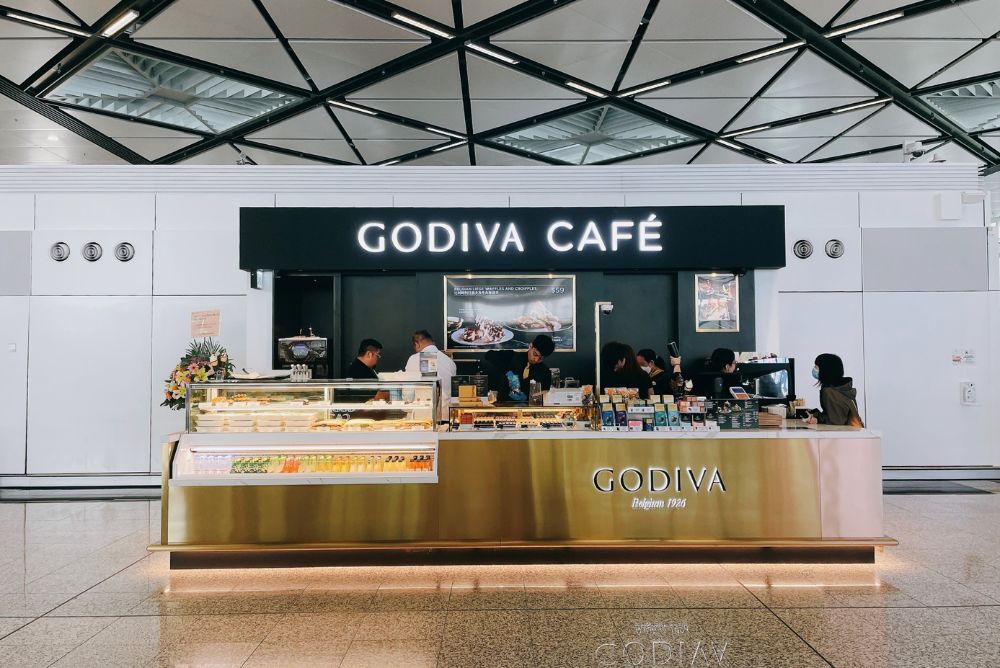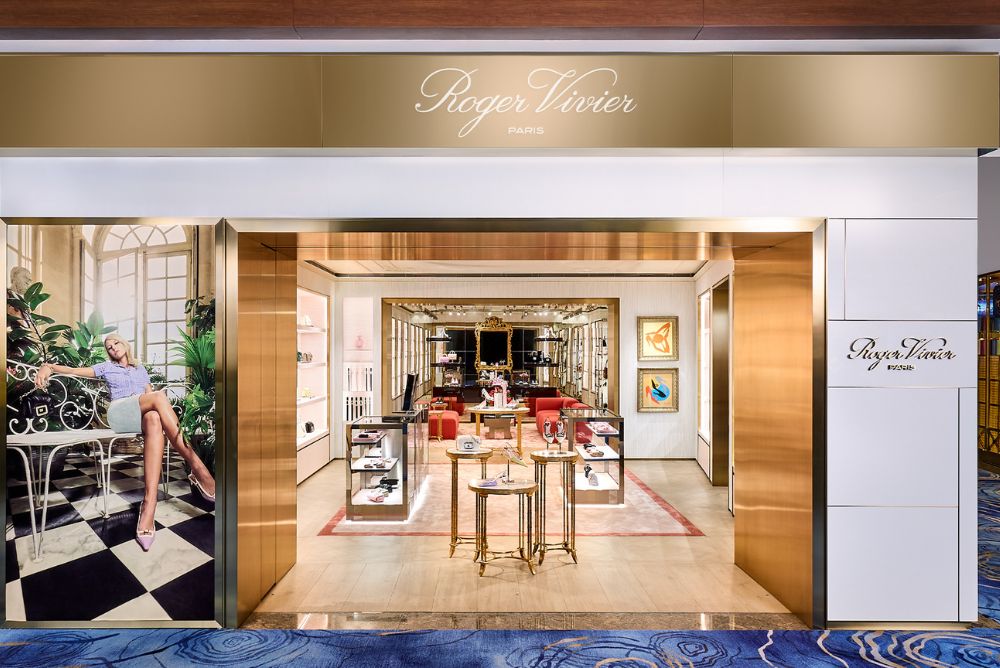LVMH talks ‘DFS’ to the analysts
By Doug Newhouse |

LVMH Chief Financial Officer Jean-Jacques Guiony described a challenging scenario for DFS Group in his conference call with financial analysts earlier this month.
Addressing the world’s leading travel retailer’s results in the third quarter of LVMH’s nine-month calendar trading period, Guiony said DFS’ development was ‘partially offset by a weak yen impacting travel destinations of Japanese travellers’.
He added that DFS’ Hong Kong Airport L&T, P&C and GM concessions continued to perform well, although the Gallerias in Hong Kong and Macao saw some softening due to the change in profile in ‘presequence of the Mainland Chinese clientele’.
“The North American airport concessions also delivered strong growth and DFS also began the renovation in its Changi Airport concession in Singapore. And finally the loyalty programme continued its successful roll-out,” he said in his preamble.
Not surprisingly, some analysts were very keen to ask Guiony about the last month’s challenging environment caused by the street demonstrations in Hong Kong, even though a good deal of this actually took place outside of the third quarter trading period in October.
Antoine Belge of HSBC was one questioner who enquired about Cognac sales, destocking in China and LVMH’s hedging policy and also whether the trading environment for DFS has deteriorated more recently after the retailer appeared to have performed quite resiliently in the third quarter.

DFS: PLUS 7% TO 8% IN HY1
He also asked whether the group hopes to recoup some of its sales in Hong Kong, or through other points of sale in different destinations?
After responding to these other points, Guiony turned his attention to DFS, saying that the situation in Hong Kong is a little bit complex to analyze. He said DFS’ numbers in Hong Kong ‘were about plus 7% to 8% in H1’and ‘very slightly and breaking even’ in Q3.
He said ‘definitely we have already seen Q3 some negative impact on the business’, as he pointed to the well-publicised protests in the Central area, which he said ‘progressively crystallized’ during the course of the quarter.
He added that this has affected the business ‘and particularly when it comes to top-end customers’, or the independent travellers, as opposed to those travelling in groups.
Guiony said that obviously the big demonstration in Hong Kong began right at the end of the group’s third quarter, so the business itself was not affected in Q3.
However, he added that the numbers in early October are ‘not too bad’ although they are ‘quite complex to read’, since they compare with very low numbers last year due to a change in the regulations in China regarding group travel. He said it has to be remembered that the figures ‘were extremely poor in Hong Kong last year at the same period’.
Guiony added: “So basically the situation is I think we are down something like 5% or 6% in Hong Kong in the first two weeks of the month which is not bad in itself…”, but having said that he warned that there is ‘more to come’ following the decision by the Chinese authorities to no longer grant visas to group tourists.

The DFS Galleria in Canton Road has been less affected by the Hong Kong demonstrations.
MISSING CHINESE TOUR GROUPS
Addressing the HSBC analyst’s question thoroughly, Guiony said that since this rule change ‘we hardly see anyone now as far as groups are concerned… we don’t see many people in the stores’.
He added: “So it’s a little bit too early to really assess the impact of the current situation, which, by the way, is not over [speaking on October 15-Ed].
“So really if we tell you to assess the impact of the current situation, the comments I’m making and the figures I just gave you are Hong Kong downtown and a point to bear in mind is that the airport [DFS’ three core category concession-Ed] is not particularly affected by that.
“The first two weeks of October… the airport is about 10%. It was up also 10% in Q3 and we’re doing good business in the airport, which has nothing really to do with what’s going on in Central.
Guiony then answered a series of questions from Thomas Chauvet at Citigroup, which included profits potential for the group in the second half allied to future expansion ambitions – and also against a first half trading background which included additional costs, with restructuring at TAG Heuer, rental inflation at DFS Los Angeles and San Francisco and Marc Jacobs start-up costs.
Chauet also mentioned LVMH’s decision to sell off most of its 23% holding in Hermès and its latest investment with DFS’ planned new debut opening in Europe and Venice in 2016. He also asked whether there is anything else the analysts should be aware of and are the cost affects related to these aforementioned developments going to carry on into the second half?

A colourful, attractive front window at the T Galleria in Scotts Walk in Singapore earlier this year.
EUROPEAN GALLERIA EXCITEMENT
Guinoy said DFS and LVMH remain excited about the new downtown location related to the projected investment in Venice, but he also added that he couldn’t see DFS investing in another big airport operator in any large-scale strategic move.
He added: “And as far as our overall acquisition strategy is concerned, you know that we are clearly optimistic and I’d say opportunistic and that we have nothing in mind and we will try to concentrate as you suggested on organic growth, which is obviously the most important thing for us.”
Addressing a further series of questions related to Chinese spending, sales performance and Cognac sell out, Guinoy said: “Okay. So let’s start with Mainland China. In Fashion and Leather our growth was a bit lower than what it was for Q2 shared by most of the brands – Vuitton probably a little bit more than others.
“We saw more action basically outside China than within China – I mean with Chinese customers obviously. The tendency for Chinese customers to shop more abroad than they do at home is still there in Q3, so it has a little bit of an impact on our figures. But all-in-all I mean we are a bit lower than what we were in Q2, a bit more compared to Q1, but lower than Q2 – but nothing really striking.
“And Cognac where our selling numbers in China were sharply down in terms of volumes in Q3 we were down about 50% of EBIT more than that. So, we will find it a bit harsh so reconcile this and sell out numbers, because the basis is entirely different. So, I will not go into all the details with the number of cases, etcetera.”
The next series of questions came from Hermine de Bentzmann at Raymond James, related initially to the Watch and Jewelry division, which he noted, had experienced a ‘quite dynamic’ quarter.

The ground breaking duplex Wines & Spirits shop design for Singapore Changi Airport, where DFS hopes to take its offer to a completely new quality level.
Q4 PROSPECTS?
But he also wanted to know what kind of slowdown LVMH is expecting in the division in Q4 due to the recent protests in Hong Kong, as well as the company’s thoughts on the recent trends it has noted on trading in Taiwan, Singapore and South Korea.
Guiony responded by saying that by region the Watch and Jewelry business was in line in Europe and in US and a little better in Europe and it was much better in Asia, although pointed out that LVMH’s watch business in Asia ‘is relatively small’.
As for the impact of recent events in Hong Kong, he added: “What’s happening today in Hong Kong will have some impacts probably, although a big part of our business takes place in Kowloon and Kowloon is less affected than Central.” [DFS currently operates three downtown T Galleria stores in Hong Kong, located in Canton Road, Hysan Place in Causeway Bay and Tsim Sha Tsui East in Kowloon-Ed].
As for the other countries mentioned by the questioner, Guiony said the Taiwanese market as a whole for the group is quite soft and Singapore is down quite significantly and somewhere between -5% and -7%.
He said this is mainly due to Chinese customers not visiting Singapore, Malaysia or Thailand in their normal numbers and for reasons connected with the political situation in Thailand and the aircraft crash in Malaysia.
Guiony added: ‘This business is under pressure. Singapore is not going too well, unlike Korea, which has a good year and a fantastic quarter. We see more and more Chinese tourists in Korea and basically the people we don’t see in Singapore – and we see less in Hong Kong [who] tend to go to Korea. So the Korean business was very good and has been good since the beginning of the year and was good in Q3.”
(Top image: The DFS T Galleria in Canton Road, Hong Kong).
[As reported earlier this month, LVMH announced a 4% revenue rise to €21.4bn ($27bn) for the first nine months of 2014, but the pressure is clearly on in Asia. The luxurygoods company said that DFS benefited from sustained airport activity ‘while certain tourist destinations suffered the repercussions of financial or geopolitical changes’. For the full results report, click here: http://www.trbusiness.com/index.php/regional/international/16141-lvmh-4-to-27bn-as-asia-slows.html].
Alcohol insights: Conversion up, spend down in Q4
Conversion of visitors in the alcohol category in duty free has risen to 54% in Q4 2023,...
Heinemann Asia Pacific makes breakthrough in New Zealand at AKL
Heinemann Asia Pacific is set to enter the New Zealand market with three new retail concepts at...
Men buy and spend more in travel retail says new research by m1nd-set
Men have a higher conversion rate and spend more when shopping in travel retail, says new...
-
 International,
International,Alcohol insights: Conversion up, spend down in Q4
-

-


In the Magazine
TRBusiness Magazine is free to access. Read the latest issue now.

 Trbusiness. The travel retail Trbusiness. The magazine for global retail and duty free professionals.
Trbusiness. The travel retail Trbusiness. The magazine for global retail and duty free professionals.





















